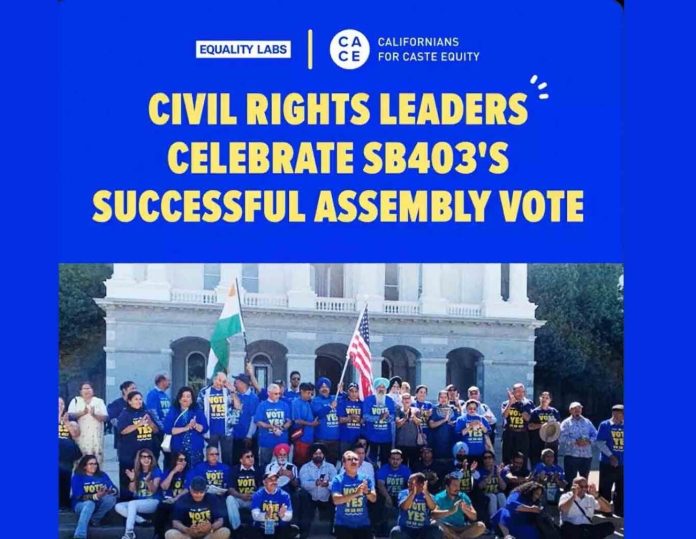
The California State Assembly has approved a bill to prevent caste discrimination and increase protections for vulnerable populations all around the state. The Assembly approved the bill on August 28. As soon as the Senate okays it and Governor Gavin Newsom signs it into law, California would become the first US state to include caste as a protected class under its anti-discrimination legislation.
Will India, where caste has dominated the socio-political arena for decades and the issue of discrimination against caste has always been a popular narrative in our political circles, also go for an anti-discrimination law? Despite a number of measures initiated by the government, discrimination against caste and communities is still prevalent and practised on a daily basis. The big question: Should India have Anti-Discrimination Law before going for Uniform Civil Code (UCC)?
According to Mujibur Rehman, Assistant Professor at Centre for Social Exclusion, Jamia Millia Islamia, New Delhi, “The government should go for Anti-Caste Discrimination Bill before any Bill on UCC. Despite some stringent laws that India has formulated by virtue of its constitutional provisions, caste is still thriving so also discrimination and violence. Almost on a daily basis they are reported and violations of existing laws are found. It means existing laws are not enough. That is why it calls for new laws. And it is the responsibility of the state to do so. The government must go for a more stringent and more implementation-friendly law.”
Dr Ranjit Singh Ghuman, Professor of Eminence, Punjab School of Economics, Guru Nanak Dev University, Amritsar, avers: “Discrimination of any kind is a crime against humanity and God. It encourages hate-crime and adversely impacts peace and harmony which are pre-requisite to development. Paradoxically, no country explicitly encourages caste-discrimination but implicitly it is embedded in the socio-cultural, psychological and politico-economic systems. It is good that California State of the US has passed an anti-caste discrimination bill but seems ironical that such a sub-human practice still exists in the world. The Constitution of India (Article 15), inter alia, prohibits caste-based discrimination by the Indian State.”
Prof Ghuman further said, “The proclamation of Vasudhaiva Kutumbakam (One Earth, One Family and One Future) is Indian moral ethos. But the problem in India is that the non-state actors do promote caste-discrimination, sometimes with implicit support of the powers-that-be. Such scenario necessitates enactment of anti-caste discrimination law. The effective implementation of the law, however, would require conscious efforts to address the socio-cultural and psychological grounds behind caste-discrimination.”
While sharing a different point of view, noted social and human rights activist John Dayal said, “The United States of America had vicious racism ever since the colonial British first took slaves from West African coasts to their new colony. But caste discrimination came to modern US when Indian students and elite workers came there in large numbers since the 1970s to study and to work. In fifty years or so since then, the first faint hints that educated persons from various states of India had carried with the baggage of caste, has now firmed up in abundant data of caste-based discrimination in campuses and workplaces in various states, including the Silicon Valley.”
He added, “Unlike India where poverty and upper caste hegemony often helps suppress casteism in workplaces and academic campuses – including those of the AIIMS and IIT and IIMs – the open society in North America has helped Dalit academics and engineers take their struggle to courts and university faculties. The Upper caste groups, caught on the wrong foot, have been quick to give battle, spending good money in propaganda to deny that the caste system in India is intrinsically violent a force that seeks to keep the Dalits in thrall and in perpetual cruel subjugation. Upper caste groups, supported by political forces in India, have sought to paint any opposition to the caste system as an attack on Hinduism, have been on a very slippery slope.”
Dayal further elaborated, “The legislation in the State of California is a precursor to some say the US, and thereby the entire west, putting caste suppression in the same bracket as racism. This was in fact the demand of Indian Dalits at the 2002 United National Conference on Race, Racism and Racial Discrimination which was held in Durban. The Indian delegation had such luminaries as Mrs Mohini Giri, and the then National Human Rights Commission had a resolution in support of the struggle of the Dalits.”




